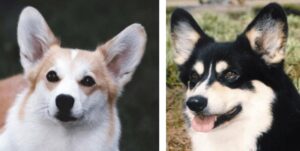
Current Judging Concerns in the Pembroke Welsh Corgi
Read about the current judging concerns in the Pembroke Welsh Corgi breed: size, eye shape and color, coat color, bone shape, and feet.
Home » Dog Breeds » Pembroke Welsh Corgi Dog Breed
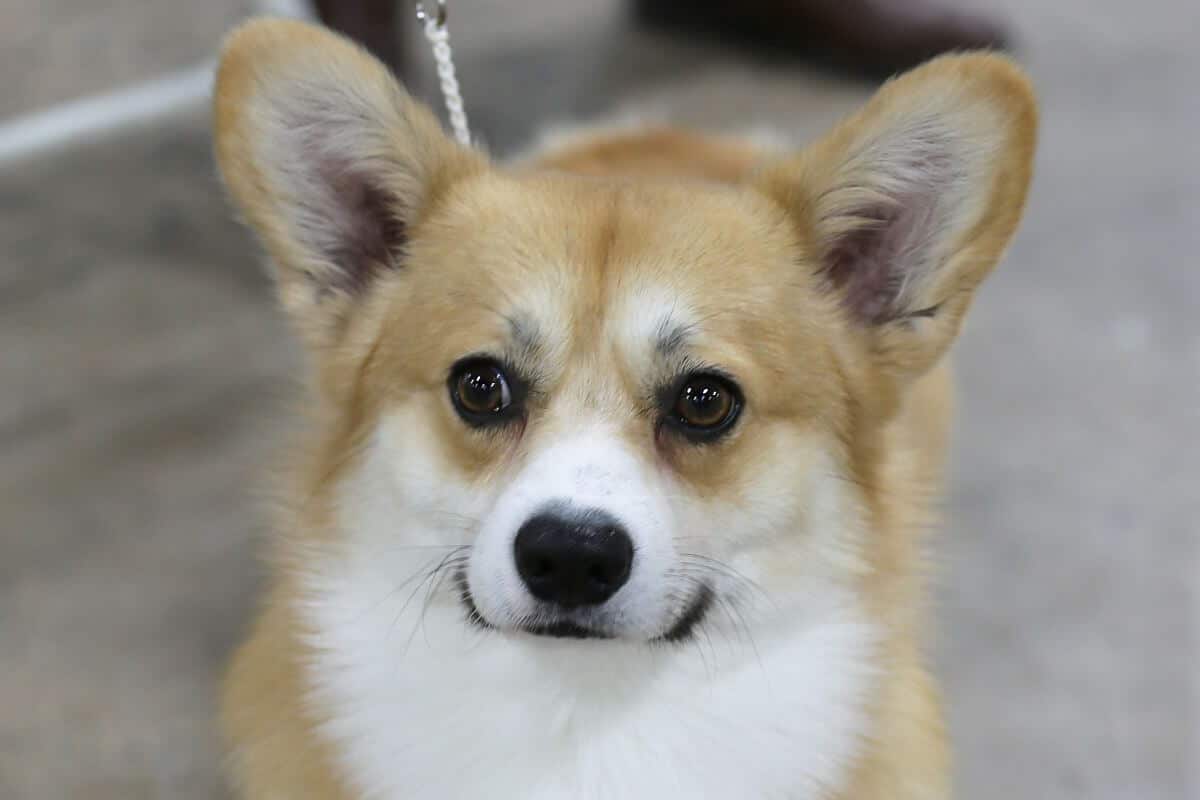
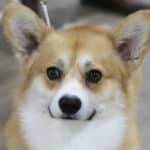
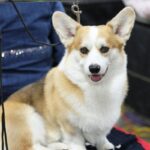
The Pembroke Welsh Corgi, or simply the Pembroke or even the Corgi, is a robust canine with a distinctive appearance and a bold outlook on life. The breed was originally developed to herd sheep and cattle on remote farms in Wales where it needed to be tough, agile, and resilient. The Pembroke is unmistakable for its low-set body, “foxy” head, and bobbed or docked tail. These hard-working herders are also highly regarded for their outgoing personalities and their smooth and easy movement, despite the dogs’ short legs. Because of the breed’s friendly and lively disposition, the typical Pembroke makes a wonderful family companion for many people today.
Herding
10 – 12 inches
28 – 30 pounds
12 – 13 years
| Country of Origin | Wales |
|---|---|
| Bred For | Cattle Herding, Companionship |
| Known For | Boldness, Foxy Head, Short Legs |
| Popularity | High |
| Temperament | Alert, Bold, Kind |
| Activities | Herding, Running, Hiking, Conformation Shows, Dog Sports |
The Pembroke Welsh Corgi, which originated in Pembrokeshire, Wales, is a charming dog with a folkloric background. The Pembroke, according to Welsh legend, arose from the lairs of fairies and elves! As a creature of mythological origin, it has been said that two children were out in the fields caring for their family’s livestock when they came across a couple of puppies.
Historians, however, claim the Pembroke is derived from the Vallhund, Swedish livestock dogs brought to Wales by the Vikings in the ninth and tenth centuries. Others believe this Corgi is derived from dogs brought to Wales by Flemish weavers in the 12th century. In either case, the breed has a hazy historical pedigree.
Farmers who kept working dogs bred only their best workers for the jobs they needed to be performed. They didn’t, however, always keep accurate records of the matings. When the dogs were first exhibited at shows in 1925, they were known simply as Welsh Corgis. Pembrokes and Cardigans were presented in the same class as a single breed at the time. Ultimately, The Royal Kennel Club recognized the two as distinct breeds in 1934.
The most visible distinction between the two breeds today are their ears and tails. The Pembroke’s ears are pointed and erect, while the Cardigan’s are large and rounded. The Cardi’s tail is significantly longer than the Pembroke’s, which has historically been docked.
Elizabeth II is the world’s most famous Pembroke fan. “Dookie,” the queen’s first Pembroke, was purchased in 1933, and she was never without one throughout her long and illustrious life.
Mature male Pembroke Welsh Corgis typically stand between 10-12 inches tall at the shoulder, with females measuring slightly less.
Male Pembrokes usually weigh up to 30 pounds, while females generally weigh around 28 pounds.
The Pembroke Welsh Corgi is a short, sturdy breed known for its distinctive silhouette. The breed has a well-proportioned body with a broad and deep chest, and well-sprung ribs. Body length is greater than the height at the withers by 40 percent, as measured from the withers to the base of the tail and from the withers to the ground. Pembrokes have moderate bone, appearing neither coarse nor racy.
Texture: The Pembroke Welsh Corgi has a weather-resistant double coat, with a short, thick undercoat and a straight, coarse overcoat of medium length. The coat is perfectly suited for the weather extremes of its native Wales. The length of the outer coat varies over the body, with a slightly thicker and longer ruff around the neck, chest, and shoulders, and slightly longer on the backs of the forelegs and hindquarters. The coat may have some waviness, but a tightly marcelled coat, wiry coat, or a long and soft coat described as “fluffy” are unacceptable.
| Standard Color | |
|---|---|
| Black & Tan | ee |
| Fawn | ee |
| Red | ee |
| Sable | ee |
A Note About Color: The Pembroke Welsh Corgi’s outer coat is “self-colored,” with or without white markings that may appear as a blaze on the head and/or on the muzzle, neck, chest, underparts, and legs. Dogs with white between the withers and tail, and white dogs with colored markings, black dogs with white markings but no tan, and those with a bluish cast are unacceptable in the breed.
| Standard Marking | |
|---|---|
| White Markings | ee |
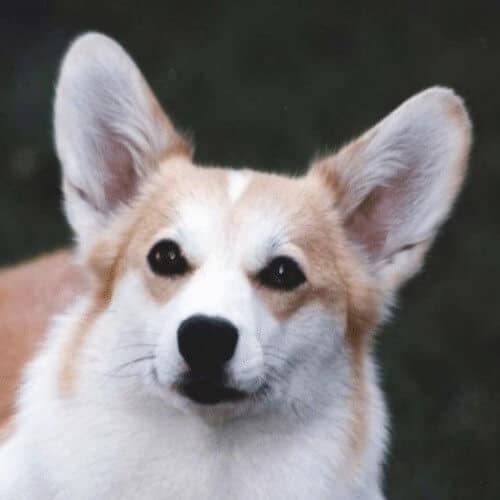
The absence of a tail on the Pembroke Welsh Corgi is a distinct breed feature and an important part of its working heritage. It has been traditionally docked as short as possible; however, some puppies are born with a naturally short tail that is less than two inches in length. Regardless of whether a Corgi has a natural tail or is docked, the set on of the tail should be level with the back and not carried so high as to spoil the appearance of the dog’s firma and level topline.
With its affable, alert, and affectionate nature, the Pembroke Welsh Corgi can be a wonderful addition to the family. However, it is important to be aware of the responsibilities that come with owning one of these dogs. Corgis may be small, but they are active and require space to run and play. Although some individuals can adapt to apartment living, having a yard and outdoor space is beneficial. Intelligent and loyal, Corgis can be bossy and vocal, so training is essential to keep these things under control.
The Pembroke Welsh Corgi is generally a healthy breed, but like all dogs, some can be prone to specific health concerns. It’s important for prospective Corgi owners to be aware of the potential risks and work with a responsible breeder who prioritizes the health of their dogs.
The average lifespan of the Pembroke Welsh Corgi is 12 to 13 years, but with proper care, a balanced diet, and regular vet visits, many can thrive beyond these years.
Although generally a healthy breed, some Pembrokes can be prone to specific health conditions, including:
The Pembroke Welsh Corgi is a breed that combines many useful and unusual characteristics. Its physical form makes it one of the most memorable of all dog breeds, and its charming personality offers a delightful blend of intelligence, affection, and a dash of stubbornness. Altogether, this is an effective and entertaining little dog.
One of the most remarkable aspects of the Pembroke’s personality is its remarkable intelligence. These dogs are quick learners, known for their intelligent outlook as much as for their affection. They are incredibly devoted towards their human companions and form strong bonds with their families. Their love and loyalty are not limited to one family member but are typically offered to everyone in the household.
One of the unique traits of the breed is its sense of humor and playfulness. These corgis have a knack for entertaining their owners with their quirky antics and playfulness.
Pembrokes are also known for their alertness and rather protective nature. Despite their small size, they make excellent watchdogs, barking to alert their owners of any potential intruders or unusual occurrences. This protective instinct, combined with their devotion to duty, makes them a great choice for urban and rural families.
It is essential to reiterate that the Pembroke Welsh Corgi does have a stubborn streak. These short-legged dogs were originally bred as herders, a job which required them to make decisions independently. This self-reliance can sometimes be viewed as stubbornness, especially if the dog believes it has a better idea on how things should be done. Patience and consistent training are keys to managing this aspect of the breed’s character.
The Pembroke Welsh Corgi is known for its energetic nature and active lifestyle. Providing a well-balanced and nutritious diet is essential for supporting the dog at every stage of life.
The Pembroke has different nutritional needs throughout its lifetime. Puppies require a diet that supports growth and development, while adult and senior dogs need food that’s tailored to their health and maintenance needs. The average adult will likely require 1.5 to 2 cups of food per day.
This breed is known for its love of food, which can lead to overeating if not managed carefully. It’s important, therefore, to be mindful of portion sizes. This can be the best way to prevent obesity, a common issue a Corgi. Also, feeding from the table is a no-no, because human meals can be high in fat and other harmful ingredients.
While treats are an excellent way to reward a Pembroke Welsh Corgi during training sessions, they need to be used moderately. It is recommended to go with low-calorie treats, or even smaller pieces of fruits or vegetables, as a reward.
One of the most remarkable aspects of training a Pembroke Welsh Corgi is the breed’s extraordinary intelligence. These dogs are quick learners, with an innate ability to grasp commands and concepts swiftly. From basic obedience to advanced tricks, Pembrokes display a remarkable aptitude for understanding and executing tasks.
The breed is also known for its strong-willed and occasionally stubborn nature. This is where consistency plays a crucial role in training. Getting the anticipated result from a Corgi demands patience, since the dog’s occasional stubbornness can be challenging at times. Harsh punishment or scolding is not the way to go. Instead, using positive reinforcement is the key to success.
Pembrokes are social dogs, but early socialization is vital. Exposing them to various people, animals, and environments from a young age will encourage them to become well-adjusted and confident as adults. Socialization can also prevent behavioral problems and it encourages the Corgi to become comfortable in different situations, whether at home or out in the world.
As a herding breed, this dog has a high energy level. Consequently, exercise is a vital component of any training regimen. Regular outings and exercises that provide mental stimulation are not just helpful,they’re necessary. Interactive games, puzzle toys, and challenging tasks can provide the outlets that are needed to manage the breed’s boundless energy.
Training a Pembroke Welsh Corgi is not just about teaching the dog; it’s about forging a bond. Owners and their Corgis embark on a journey together, with each party learning from the other. Throughout the journey, the dog’s intelligence, determination, and affection are showcased.
The Pembroke Welsh Corgi, with its short legs and distinctive shape, may seem like a small dog. However, it possesses a surprising amount of energy and vitality. Exercise is not just a recommendation for this breed; it’s a fundamental necessity to ensure the dog’s physical and mental well-being.
| Energy Level | Moderate to High |
|---|---|
| Exercise Requirements | 1 Hour/Day (Minimum), Daily Walks, Vigorous Running, Regular Exercise, Playing with Another Dog, Mental Stimulation |
With a heritage deeply rooted in herding cattle and other livestock, the Pembroke Welsh Corgi is accustomed to an active lifestyle. This genetic predisposition translates into the need for daily exercise and activity.
A typical day should include at least 30 to 60 minutes of physical activity, which can be achieved through daily walks, play sessions, and interactive games. The Pembroke’s love of play is unmatched, and activities such as games of fetch, tug-of-war, and frisbee are excellent ways to keep the dog engaged and in good shape.
Exercise is not limited to physical exertion, however. Mental stimulation is equally vital, as these dogs are incredibly intelligent. Their minds need to be engaged to prevent boredom and any unwanted behavioral issues. Interactive toys, puzzle feeders, and obedience training provide mental challenges that keep their cognitive abilities sharp.
For the Pembroke Welsh Corgi, exercise and training also offer opportunities for socialization. Encounters with other dogs, people, and new environments promote positive interactions and can inhibit any shyness or fearfulness. Positive experiences will help to create a confident and well-adjusted Corgi.
The coat of the Pembroke Welsh Corgi is comprised of a dense, weather-resistant outer layer and a soft, insulating undercoat. This double coat is not just a striking characteristic of the breed but also a functional one. It provides protection from the elements and regulates body temperature, ensuring the dog is comfortable in various weather conditions.
| Coat Type | Short, Smooth, Brilliant |
|---|---|
| Grooming Requirements | Weekly Brushing, Occasional Bathing, Routine Ear Cleaning, Periodic Nail Trimming, Regular Tooth Brushing |
Regular coat care is the foundation of grooming and should be done several times a week. The double coat sheds year-round, with heavier shedding occurring during seasonal changes, so brushing helps to remove the loose hairs, prevent matting, and stimulate healthy skin and coat growth.
The frequency of baths depends on the dog’s activity level and lifestyle. Bathing removes dirt, odors, and excess oils from the coat. The coat should be dried thoroughly to prevent skin issues from developing.
Pembrokes typically have tufts of hair around their ears and paws that require occasional trimming to keep them neat and to prevent matting. Additionally, nail care is essential to prevent overgrown nails from causing discomfort and affecting both the dog’s usefulness as a herding dog.
Regularly checking and cleaning the upright ears can prevent infections. Additionally, dental care, such as brushing the teeth and providing dental chews, is crucial for the dog’s oral health and to ward off gum disease and bad breath.
The Pembroke Welsh Corgi is a breed brimming with energy and playfulness. The dog’s zest for life is contagious, and it’s impossible not to be swept up by all that good energy. Living with a Pembroke is always an enriching experience, with plenty of activity, affection, and endless laughter.
One of the most endearing qualities of a Pembroke is its unwavering loyalty. These dogs form deep and unbreakable bonds with their human companions. They also make excellent watchdogs and will alert their owners to any potential intruder or unusual occurrence. Their courage and determination are truly impressive.
Corgis are famous for their “Corgi flop,” a signature move where they plop down on their fronts with their hind legs sticking out. It’s one of the many charming quirks that endear these dogs to their families. Every “flop” is a reminder of their delightful and sometimes comical nature.
Corgis are active dogs, and they thrive on regular exercise. Daily walks, playtime, and games of fetch are not just activities but also opportunities for bonding and keeping the Corgi healthy and fit. Because they’re so intelligent and curious, they also enjoy toys and games that stimulate their minds as well as their bodies.
The double coat of the Corgi requires regular attention to grooming. Brushing and caring for the coat removes any dead hair and distributes the coat’s natural oils, but it also becomes an act of love and devotion. Regular grooming sessions provide opportunities for strengthening the bond between the Corgi and its groomer as much as it keeps the plush, weather-resistant coat in top condition.
While the Corgi is known for its agility and herding instincts, these dogs can comfortably live in smaller spaces, provided they are given daily periods of exercise. Most are adaptable to sharing their homes with other animal companions, but introductions should always be properly supervised to ensure the safety and compatibility of all members of the household.
Pembroke Welsh Corgi puppies are bundles of joy, a source of endless delight, and the promise of unconditional love. From their distinctive appearance to their spirited personalities, these little wonders have a way of capturing hearts and brightening any room. However, their boundless energy, bold outlook on life, and natural instinct to herd require patience and understanding from their human families.
The pint-sized Pembroke possesses an irresistible charm that easily captures hearts. Caring for this puppy, however, is both a pleasure and a privilege that involves dedication, love, and the responsibility of ensuring the young one’s health and happiness.
Puppy-proofing the living space is crucial, including removing hazards, securing electrical cords, and making sure any toxic product and plant are out of reach. The Corgi puppy is naturally curious, so it’s important to create a safe environment.
Proper nutrition is the foundation of the Pembroke puppy’s growth and development. Providing a balanced diet, which includes a high-quality puppy food and fresh water, is essential for supporting the pup’s growth.
Early training and socialization are also key to raising a well-adjusted Corgi. Crate training can be a useful tool for housebreaking and provides a safe space for the puppy. It’s also important to teach basic obedience skills and offer regular exercise and play sessions throughout the day.
The Pembroke Welsh Corgi puppy is well-known for its playful nature and boundless energy, but like any puppy, it benefits greatly from regular exposure to various people, animals, and environments. This early socialization allows the pup to be comfortable in different situations and it can prevent many unwanted behavioral issues.
Pembroke Welsh Corgis are highly active and intelligent dogs that thrive when engaged in physical activities such as dog sports. These events not only provide exercise, they can also stimulate the breed’s sharp mind and satisfy its herding instincts.
The Pembroke Welsh Corgi is recognized by the world’s leading registries and kennel organizations, which categorize the breed into a specific Group based on its unique characteristics. This breed is recognized worldwide under the following Group designations:
| Organization | Group Designation |
|---|---|
| AKC (American Kennel Club) | Herding |
| UKC (United Kennel Club) | Herding Dog |
| CKC (Canadian Kennel Club) | Herding |
| ANKC (Australian National Kennel Council) | Working Dogs |
| RKC (The Royal Kennel Club) | Pastoral |
| FCI (Fédération Cynologique Internationale) | Group 1: Sheepdogs and Cattledogs; Section 2: Cattledogs |
The ideal Pembroke Welsh Corgi is described by a Breed Standard that is approved by each of the world’s leading registries and kennel organizations. The Breed Standards for this breed may be found in the following links:
| Organization | Breed Standard |
|---|---|
| American Kennel Club | AKC Pembroke Welsh Corgi Breed Standard |
| United Kennel Club | UKC Pembroke Welsh Corgi Breed Standard |
| Canadian Kennel Club | CKC Pembroke Welsh Corgi Breed Standard |
| Australian National Kennel Council | ANKC Pembroke Welsh Corgi Breed Standard |
| The Royal Kennel Club | RKC Pembroke Welsh Corgi Breed Standard |
| Fédération Cynologique Internationale | FCI Pembroke Welsh Corgi Breed Standard |
Pembroke Welsh Corgi clubs play a vital role in supporting and promoting the breed, fostering responsible ownership, and providing resources for Corgi owners and enthusiasts.
The Pembroke Welsh Corgi Club of America (PWCCA) is the national parent club for the breed in the United States. The club is dedicated to upholding the breed’s written Standard, preserving its utility and function, and promoting responsible breeding practices that support the well-being of all Corgis. The club’s members provide resources for breed enthusiasts, including health information, educational materials, and year-round social events.
The Pembroke Welsh Corgi Association of Canada (PWCAC) is an active club for fanciers of the breed in Canada. The club’s mission is to encourage and promote the responsible owning, breeding, training, and exhibition of the breed.
The Welsh Corgi League was established in 1938. Today, its members cater to all who appreciate the qualities of the Pembroke Welsh Corgi in the UK.
When acquired without adequate understanding of the breed’s unique qualities, some Pembroke Welsh Corgis can often end up in need of adoption or fostering. Rescue groups can play a crucial role in these circumstances by providing shelter, care, and rehoming services for a Corgi in need.
Pembroke Welsh Corgi Club of the Garden State operates in the United States, providing shelter and rehoming services for Corgis that have been neglected or abandoned. The organization’s volunteers have rescue programs in many regions of the country.
Corgi Rescue is a service that functions in the United Kingdom under the umbrella of The Welsh Corgi League. The group’s volunteer members work diligently to rehome both Cardigan and Pembroke Welsh Corgis.
Pembroke Welsh Corgis typically have a lifespan of around 12 to 13 years. Like any dog, their longevity can be influenced by their overall health, diet, and exercise. With proper attention to their physical needs, including regular excursions outdoors and a good feeding regimen, and with regular veterinary care, these dogs typically enjoy a long and fulfilling life.
Yes, most Pembrokes are born with tails. However, the length can vary, with some pups having longer tails that curl over their backs. Others are born with shorter, stubbier tails. There is a common misconception that Pembrokes are always born without tails because tail docking has been traditionally practiced in the breed.
Pembroke Welsh Corgis are known to shed quite a bit. They have a thick, double coat that requires regular brushing to manage shedding and maintain the coat’s overall good health. They tend to shed continuously throughout the year, with heavier shedding during the spring and fall seasons as they “blow” their undercoat.
Pembrokes are excellent family dogs. They are a breed that is known to be typically affectionate, loyal, and good with children. These energetic dogs often enjoy being involved in family activities and are usually eager to please their owners, which also makes them relatively easy to train. Their alert nature and tendency to be vocal also make them good watchdogs, but they should be supervised around small children as they tend to want to herd the kids!
Pembroke Welsh Corgis are not hypoallergenic. In fact, due to their shedding and dander, they may not be the best choice for people with severe allergies. Many allergic reactions are caused by proteins found in a dog’s dander, saliva, and urine, so less shedding does not necessarily equate to being hypoallergenic.
Pembrokes can be quite vocal and are known to bark more than some other breeds. They were originally bred to herd cattle, and barking was one way they controlled the farmer’s livestock. While this trait can be useful in specific situations, it may require training and management to prevent excessive barking in a household setting.
Pembroke Welsh Corgis are considered to be very intelligent dogs. They are quick to learn and respond well to positive reinforcement training methods. Their intelligence, combined with the breed’s eagerness to please, often allows them to excel in Obedience, Agility, and Herding Trials. The Pembroke’s smarts also means these dogs need plenty of mental stimulation to avoid the kind of boredom that can lead to unwanted behaviors.

Read about the current judging concerns in the Pembroke Welsh Corgi breed: size, eye shape and color, coat color, bone shape, and feet.
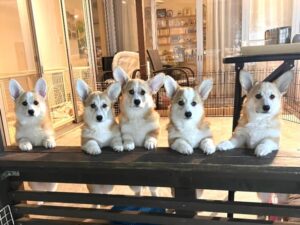
The Pembroke Welsh Corgi is a small, sturdy, athletic, and energetic herding dog that originated in Pembrokeshire, Wales. Read more.
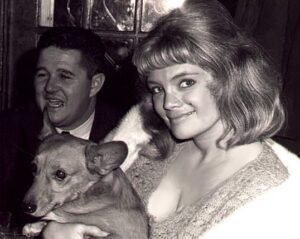
Discover the story of Mary Elizabeth Goodneighbor Goodneighbor, a unique Corgi character with a vibrant personality.
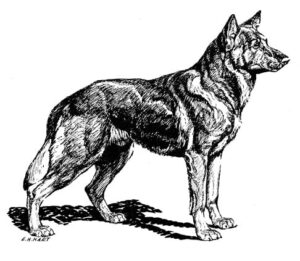
Let’s talk about type in the breed: Why is side gait important characteristic of breed type? It is important for the structure of the dog.

Read about the current judging concerns in the Pembroke Welsh Corgi breed: size, eye shape and color, coat color, bone shape, and feet.

The Pembroke Welsh Corgi is a small, sturdy, athletic, and energetic herding dog that originated in Pembrokeshire, Wales. Read more.

Discover the story of Mary Elizabeth Goodneighbor Goodneighbor, a unique Corgi character with a vibrant personality.

Let’s talk about type in the breed: Why is side gait important characteristic of breed type? It is important for the structure of the dog.
The best way to ensure a long and happy relationship with a purebred dog is to purchase one from a responsible breeder. Not sure where to begin?
Contact the National Parent Club’s Breeder Referral Program, which is listed on the AKC Breeder Referral Contacts page.
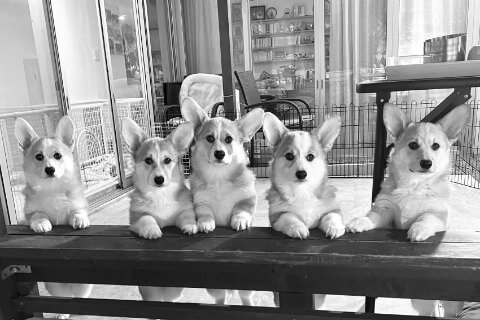

"*" indicates required fields
Showsight Magazine–the world’s most influential purebred dog publication since 1992. Each issue reaches a global audience dedicated to preserving the history and health of purpose bred dogs. Filled with award-winning editorial focused on news and insights from the dog show community, top breeders, handlers, AKC Judges, and more!